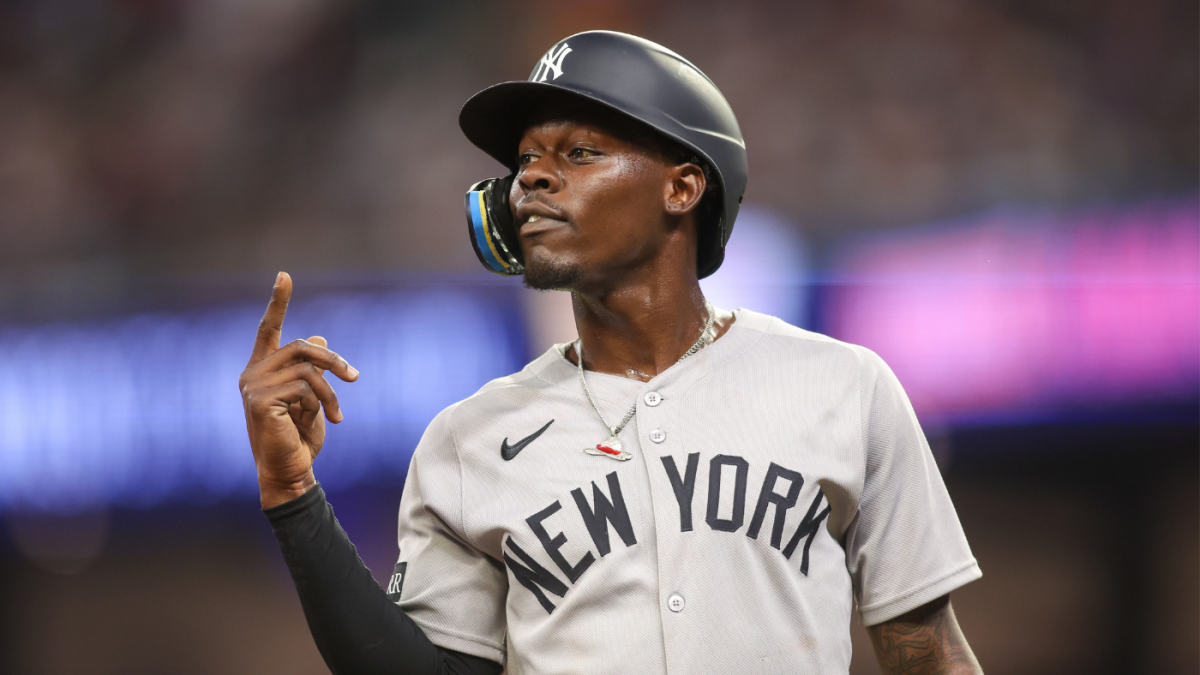Shadows Over the Diamond: An Investigation into the Chisholm-Pérez Incident
The Storm Brewing in Baseball
Baseball, often romanticized as America’s pastime, is not immune to controversy. The sport, known for its strategic nuances and historic rivalries, has recently found itself entangled in a storm of allegations and investigations. At the heart of this controversy is an incident involving Miami Marlins’ outfielder Jazz Chisholm Jr. and Atlanta Braves’ coach Eddie Pérez. The alleged exchange between these two figures has sparked a league-wide investigation, raising questions about sportsmanship, player safety, and the unspoken codes of conduct within the game.
The Alleged Beanball Threat: A Closer Look
The crux of the matter revolves around a potential “beanball threat,” a term that strikes fear into the hearts of players and officials alike. A beanball refers to an intentional pitch thrown at a batter with the intent to hit them, a dangerous and highly frowned-upon act in baseball. The incident in question reportedly occurred around July 20, 2025, during a game between the Marlins and the Braves.
Understanding the context is crucial. Baseball games are pressure cookers, filled with high-stakes moments, intense rivalries, and emotions running hot. Communication between players and coaches from opposing teams is not uncommon, but the line between playful banter and hostile intimidation can be razor-thin. The investigation hinges on deciphering the exact words spoken, the tone used, and the overall atmosphere surrounding the exchange.
Eddie Pérez’s Defense: A Denial of Malicious Intent
In the wake of the allegations, Eddie Pérez has strongly denied any ill intent. While the specifics of his defense remain undisclosed, the general sentiment is that any comments he made were either misinterpreted or taken out of context. Pérez, a respected figure within the Braves organization and a former MLB player, maintains that he would never condone or participate in actions that could intentionally harm another player.
This denial adds a layer of complexity to the investigation. MLB officials must now weigh Chisholm’s interpretation of the exchange against Pérez’s claims of innocence. The absence of definitive audio or video evidence makes this process even more challenging, forcing investigators to rely heavily on witness testimonies and circumstantial details.
The MLB Investigation: Seeking Truth and Accountability
Major League Baseball has a zero-tolerance policy regarding intentional acts of violence or intimidation. The league’s investigation into the Chisholm-Pérez incident underscores this commitment to player safety and fair play. The investigation is likely to involve interviewing both Chisholm and Pérez, as well as any other individuals who may have witnessed the exchange or have relevant information. MLB officials may also consult with lip-reading experts or analyze available video footage in an attempt to reconstruct the conversation.
The stakes are high for both Chisholm and Pérez. If the investigation concludes that Pérez did indeed issue a beanball threat, he could face disciplinary action ranging from fines and suspensions to more severe penalties. Conversely, if the investigation finds no evidence to support Chisholm’s claims, the incident could be dismissed as a misunderstanding. However, the reputational damage for both individuals might linger, regardless of the outcome.
The Broader Implications: Sportsmanship and Player Safety
The Chisholm-Pérez incident raises fundamental questions about sportsmanship and player safety in professional baseball. While the sport has always been characterized by a certain level of aggressive competition, there is a clear boundary between playing hard and intentionally endangering an opponent. Beanball threats cross this line, creating a climate of fear and potentially leading to serious injuries.
This incident also serves as a reminder of the importance of communication and accountability in sports. Players and coaches must be mindful of their words and actions, particularly in high-pressure situations. Open and respectful dialogue between teams is essential for maintaining a healthy and competitive environment. Furthermore, the league must continue to enforce strict penalties for any behavior that threatens the safety and well-being of its players.
The Aaron Boone Factor: A Manager’s Dilemma
While not directly related to the Chisholm-Pérez investigation, the mention of Yankees manager Aaron Boone’s decision regarding Jorbit Vivas highlights another aspect of team management and player development. The reports question why Boone didn’t bench Vivas, implying a potential performance issue or disciplinary concern. This situation, though separate, underscores the multifaceted challenges faced by managers in balancing team performance with individual player needs. Boone’s decision, whatever the underlying reason, reflects the constant pressure to make strategic choices that benefit the team while also fostering a positive environment for player growth.
Beyond the Headlines: What’s at Stake
The investigation into the alleged beanball threat transcends the immediate details of the Chisholm-Pérez exchange. It touches upon the core values of baseball: fair play, respect for opponents, and a commitment to player safety. The outcome of this investigation will send a clear message about the league’s stance on these issues and its willingness to hold individuals accountable for their actions.
Furthermore, the incident serves as a reminder of the intense scrutiny faced by professional athletes and coaches. Every word, every gesture, and every decision is subject to public examination and interpretation. In this era of instant communication and social media, the consequences of missteps can be far-reaching and long-lasting.
Awaiting the Verdict: The Future of Fair Play
The baseball world awaits the conclusion of the MLB investigation with bated breath. The findings will not only determine the fate of Chisholm and Pérez but also shape the future of sportsmanship and player safety in the league. Regardless of the outcome, this incident serves as a valuable lesson for all involved: respect, responsibility, and fair play must always be the guiding principles of America’s pastime. The shadows cast by this controversy serve as a stark reminder that the pursuit of victory should never come at the expense of ethical conduct and the well-being of fellow athletes.

